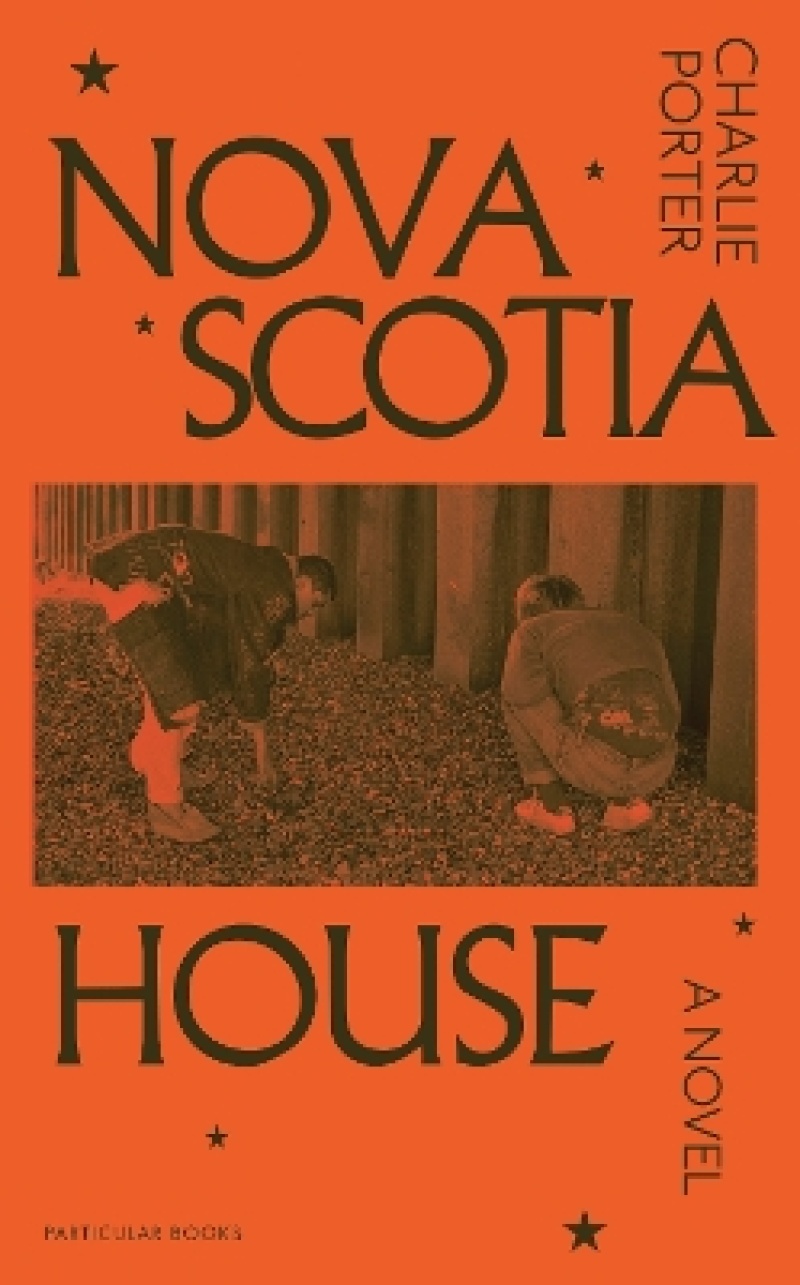<b><i>Nova Scotia House </i>is one of the best things I've read in many many years; it is an extraordinary work of the imagination, and there is so much heart and longing in it that it filled my soul. It is a completely imagined work--a kind of gay dystopian story that isn't, a search for family that ends up being a multiple love story about creation. And I want to point out something as powerful as the narrative: the sheer writing force of it. Sentences that reordered my reading DNA from the first, colloquial sentences that are highly literary, a kind of queering of Beckett, a new way of seeing and writing that is not anyone else's but Porter’s own. I am really knocked out by this book. It is a profound work</b>
- Hilton Als,
<b>Beautifully provocative, <i>Nova Scotia House</i> is the most compelling exploration of life, death, love and resistance that I've read for a very long time</b>
- Eimear McBride,
<b>This is going to blow reader’s minds. Intense, physical, true</b>
- Paul Flynn,
<b>I was wounded by <i>Nova Scotia House. </i>It’s undeniably fresh, but also a pressing reminder of the importance of community, hopeful yet richly painful</b>
- Nicola Dinan,
<b>This book occupies the spaces, the lives in between, the connections we make, the memories still happening in our heads, our bodies' responsibility to the state we put them in, growing, lusting, dying, reviving, sold on, the ruins of our lives, the communities of our past, another kind of economy, of sex and loss and weeds and words, this work of genius, <i>Nova Scotia House</i></b>
- Philip Hoare,
<b><i>Nova Scotia House </i>is surely the tenderest of AIDS books. It makes the always radical argument that play is more important than work. At heart, it’s a queer manifesto, proclaiming the value of queer experience and soul</b>
- Robert Gluck,
<b>It’s a book made out of conversation, internal and external, it’s a variety of oral literature, I think, dropping punctuation as if you are slowly rushing to a train, incantatory, and Charlie Porter delivers a collected sensation that you are in it. We remember where we stood and forgetting is also enough. What a softly inspiring book about lived history and time and like I said, or he said, always love</b>
- Eileen Myles,
<b>I truly think Charlie Porter is doing something new: forging a radically direct language for describing a whole new way of inhabiting the world. NOVA SCOTIA HOUSE is about loss and grief, sex and love, but it’s also a super-powerful account of change and growth, about metabolising trauma and refusing to relinquish dreams</b>
- Olivia Laing,
<b><i>Nova Scotia House</i> is just extraordinary. To read it is life-changing</b>
- Chantal Joffe,
<b>I didn’t want to let this book go. The way it reveals its narrator, and its secrets – the pockets of emotion and memory that we half-hide from ourselves – is astonishing. The rhythm of the sentences is a spell. The pain is palpable, but worn with a kind of light melancholy, alternately bemused and amazed by the way things have turned out. Johnny and Jerry, their relationship, the long trail of damage inflicted by AIDS, the fight against numbness, and the way this book folds time again and again are with me</b>
- Nate Lippens,
‘A work of genius’ Philip Hoare
‘One of the best things I’ve read in many many years’ Hilton Als
'Beautifully provocative ... the most compelling exploration of life, death, love and resistance that I've read for a very long time' Eimear McBride
A story of loss and grief, sex and love, and refusing to relinquish dreams
He said he would understand if it was too much for me, that I could leave him, that I was young, I should be living, I said to him, I am living.
Johnny Grant faces stark life decisions. Seeking answers, he looks back to his relationship with Jerry Field. When they met, nearly thirty years ago, Johnny was 19, Jerry was 45. They fell in love and made a life on their own terms in Jerry’s flat: 1, Nova Scotia House. Johnny is still there today – but Jerry is gone, and so is the world they knew.
As Johnny’s mind travels between then and now, he begins to remember stories of Jerry’s youth: of experiments in living; of radical philosophies; of the many possibilities of love, sex and friendship before the AIDS crisis devastated the queer community. Slowly, he realizes what he must do next—and attempts to restore ways of being that could be lost forever.
Nova Scotia House takes us to the heart of a relationship, a community and an era. It is both a love story and a lament; bearing witness to the enduring pain of the AIDS pandemic and honouring the joys and creativity of queer life. Intimate, visionary, and profoundly original, it marks the debut of a vibrant new voice in contemporary fiction, and a writer with a liberating new story to tell.
